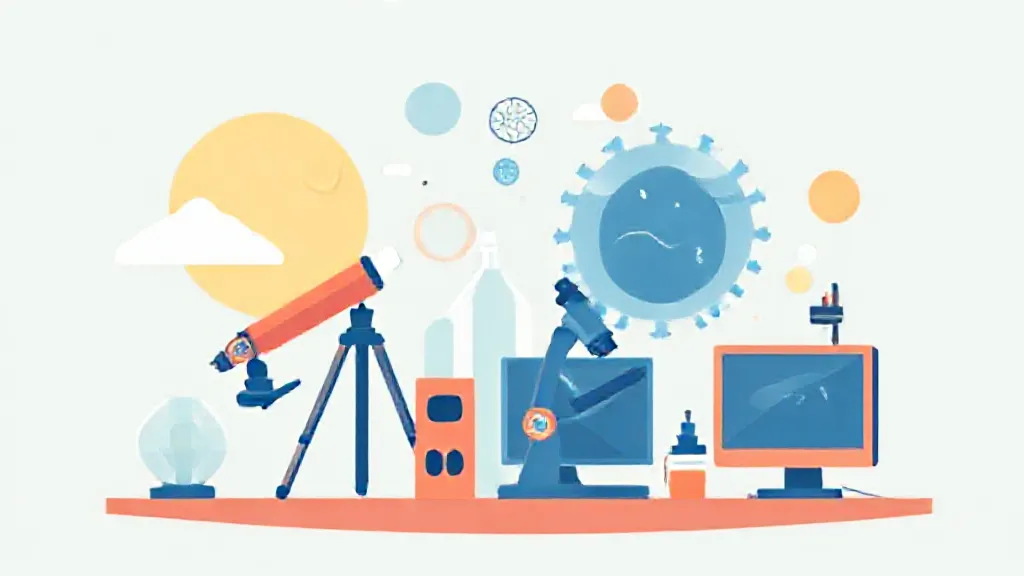The history of science is marked by numerous inventions that have fundamentally altered our understanding of the world. From the telescope to the computer, these innovations have not only expanded the boundaries of scientific inquiry but have also reshaped society itself. This article delves into some of the most significant inventions that have changed science forever, exploring their impacts and the contexts in which they emerged.
The Telescope: A Window to the Universe
The invention of the telescope in the early 17th century by figures like Galileo Galilei marked a pivotal moment in astronomy. Prior to this, our understanding of the cosmos was largely based on philosophical reasoning and limited observation. The telescope allowed scientists to observe celestial bodies in unprecedented detail, leading to groundbreaking discoveries such as the moons of Jupiter and the phases of Venus.
These findings not only supported the heliocentric model proposed by Copernicus but also challenged long-held beliefs about the universe, paving the way for modern astronomy.
The Printing Press: Democratizing Knowledge
Invented by Johannes Gutenberg in the mid-15th century, the printing press revolutionized the dissemination of knowledge. Before its invention, books were laboriously copied by hand, making them scarce and expensive.
The printing press enabled the mass production of texts, which facilitated the spread of scientific ideas during the Renaissance and the Scientific Revolution. This democratization of knowledge allowed for greater collaboration among scientists and the rapid exchange of ideas, ultimately leading to significant advancements in various fields, including physics, biology, and chemistry.
The Scientific Method: A Framework for Inquiry
While not a physical invention like the telescope or printing press, the formalization of the scientific method in the 17th century was a revolutionary development in scientific practice.
Pioneered by thinkers such as Francis Bacon and René Descartes, the scientific method provided a systematic approach to inquiry based on observation, experimentation, and rational analysis. This framework allowed scientists to test hypotheses and refine their understanding of natural phenomena, laying the groundwork for modern scientific research and inquiry.
Electricity: Powering a New Era
The harnessing of electricity in the 19th century transformed not only science but also everyday life.
Key inventions such as the electric battery by Alessandro Volta and the electric light bulb by Thomas Edison opened up new avenues for research and innovation. Electricity enabled scientists to explore new fields, such as electromagnetism and thermodynamics, leading to the development of technologies that would shape the modern world. The ability to generate and control electrical energy has had profound implications for communication, transportation, and industry.
The Microscope: Unveiling the Invisible
The invention of the microscope in the late 16th century allowed scientists to observe the microscopic world for the first time. Pioneered by figures like Antonie van Leeuwenhoek, the microscope revealed a hidden realm of microorganisms, cells, and tissues, fundamentally changing our understanding of biology and medicine. This invention laid the groundwork for cell theory and advancements in microbiology, leading to breakthroughs in health, disease prevention, and biotechnology.
The Computer: Revolutionizing Data Analysis
The advent of computers in the 20th century marked a significant turning point in scientific research. With the ability to process vast amounts of data quickly and accurately, computers have transformed fields such as genomics, physics, and climate science. The development of algorithms and computational models has enabled scientists to simulate complex systems and analyze data in ways that were previously unimaginable.
This technological revolution has not only accelerated scientific discovery but has also enhanced our ability to address global challenges.
The Internet: Connecting Scientists Worldwide
The creation of the internet in the late 20th century has had a profound impact on the scientific community. It has facilitated global collaboration, allowing researchers from diverse backgrounds to share data, ideas, and findings in real-time.
Online databases and journals have made scientific literature more accessible than ever, promoting transparency and reproducibility in research. The internet has also given rise to citizen science, enabling the public to participate in scientific endeavors and contribute to data collection and analysis.
Conclusion: The Ongoing Journey of Innovation
The inventions discussed above represent just a fraction of the myriad innovations that have shaped science throughout history.
Each of these inventions has not only advanced scientific knowledge but has also influenced society at large, demonstrating the profound interconnectedness between scientific inquiry and human progress. As we continue to innovate and explore new frontiers, it is essential to recognize the legacy of these inventions and the potential for future breakthroughs that will further transform our understanding of the universe.
